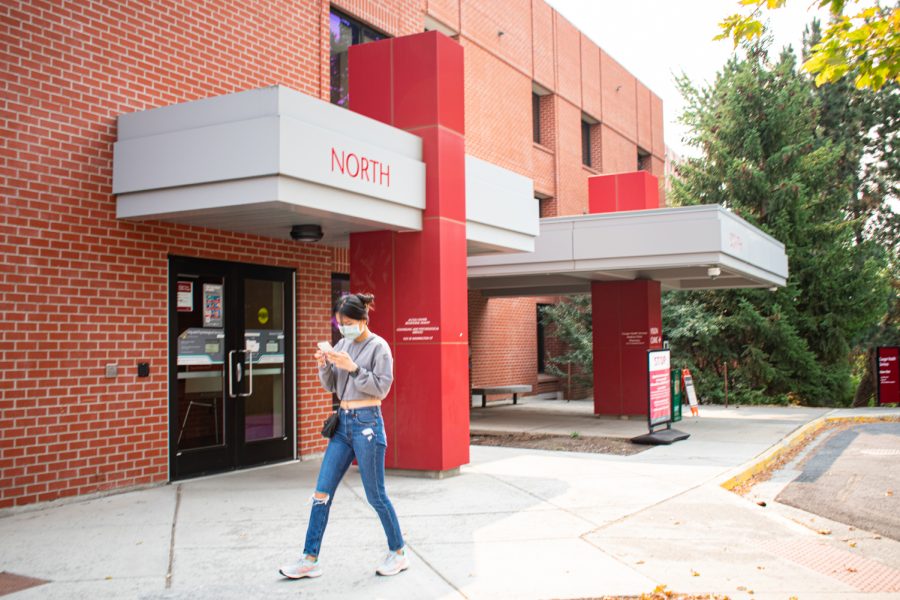Help is available for students through 24-hour crisis line
Call takers receive over 2,000 calls each year; callers generally struggle with anxiety, depression, academics
FRANKIE BEER | DAILY EVERGREEN FILE
Students who need crisis support outside of normal business hours can call the 24-hour crisis support hotline at 509-335-2159.
September 27, 2021
WSU’s 24-hour crisis support hotline specializes in helping students who are facing mental health issues, such as anxiety, depression and other psychological dilemmas — with call takers answering over 2,000 calls a year.
“It’s a pretty busy, vigorous job. We really try to help whenever students are on campus,” said Jennifer Ellsworth, director of Counseling and Psychological Services.
CAPS Associate Director Loren Brown works alongside Ellsworth in managing the hotline for students. This is no small feat, as there is no shortage of calls the operators have to answer every day.
“On a day-to-day basis, it really does kind of fluctuate over when we get a lot of phone calls. There’s not much of a pattern to it.” Brown said. “There may be times where a student might have to leave a message and we have to get back to them or when they might have to briefly hold.”
Mental health professionals who staff the hotline rarely get a break between calls and appointments, Ellsworth said.
“Everybody is completely booked for next week, and are probably getting booked for [the week after],” Ellsworth said. “It can be a difficult schedule for some people to keep up with.”
Even with the large number of callers to the hotline, many who call do so for several similar reasons.
“The percentages might shift a little, but the top three are always the same,” she said. “Anxiety, depression and academics are the top three problems students come with.”
Ellsworth and Brown both said it is important to talk to someone immediately in certain circumstances. This is especially the case for anyone having an urgent mental health crisis.
“If you are in crisis, please let us know,” Brown said. “Because if we put you on hold, we think we really have some nice students who would say, ‘OK, I’ll go on hold.’”
While the hotline helps many students who just need to speak to someone to help them, mental health is handled better in person, Ellsworth said.
“It’s important for students to recognize that mental health is everyone’s responsibility. And I think our campus [knows] that,” Ellsworth said. “I think we’re more successful on campus when we’re all helping and working together.”
Ultimately, Brown and Ellsworth said any student who is struggling with mental health should contact them as soon as possible to get the help they need.
“I think my encouragement would be for students to get help sooner rather than later,” Ellsworth said. “It can be more challenging in the final few weeks of the semester when they could have gotten help earlier.”
For students who need help mentally or just need someone to talk to in tough times, CAPS professionals are available at 509-335-2159.










